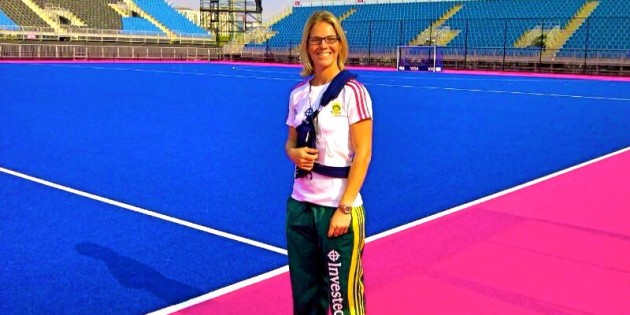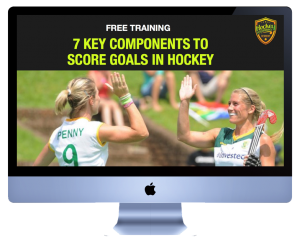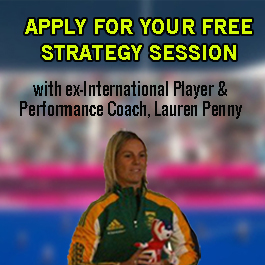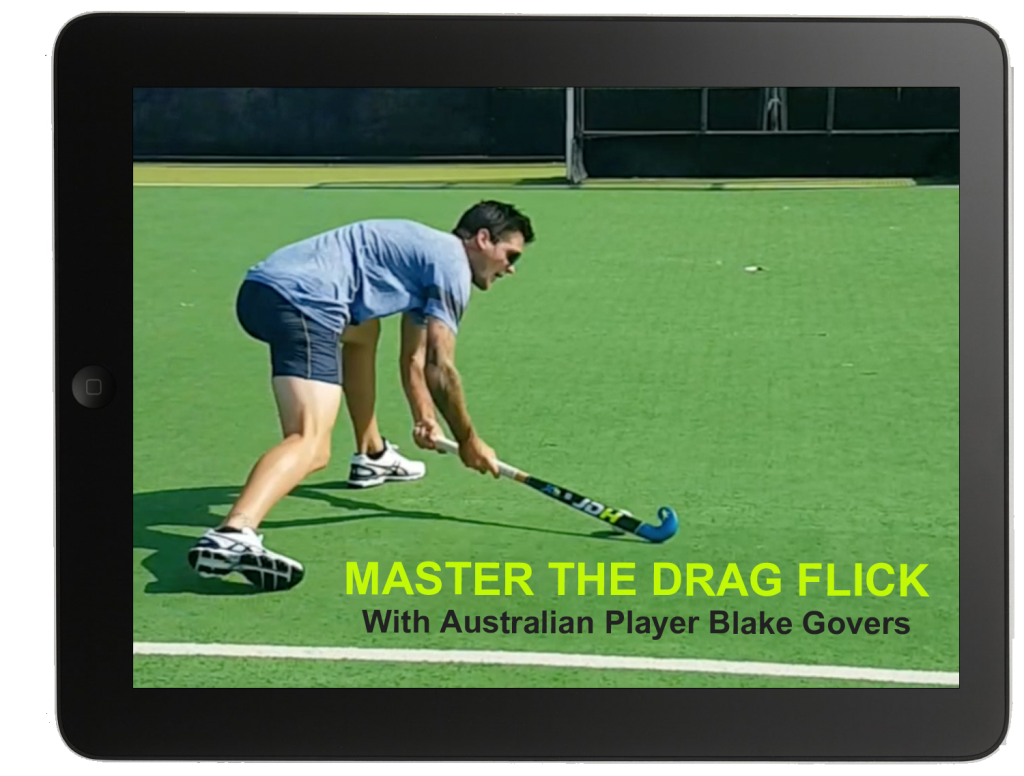Watching the Rabobank Hockey World Cup was great and I really enjoyed it. I was able to watch lots of the games on Sky Sports during a week spent back in England.
This TV hockey-feast has been a real delight, because the sport is rare on British TV channels – something I know because I lived in England for almost a decade and rarely saw it on television. They tend to be dominated by football, which incidentally I also love, but it’s been great to watch some World Cup hockey too.
I have loved the commentary and the super slow motion replays. I’ve also enjoyed the match analysis – mostly with former international players. There are certainly more opportunities for former hockey internationals these days.
Why I found watching the world cup tough
However, although I’ve loved watching the World Cup, it’s been challenging at times to watch South Africa on the pitch, and feeling like I should be out there playing.
I was fortunate to represent South Africa while still living in England. I had left South Africa straight after school aged 17, which meant that I had potentially missed seven years of playing internationally because I was not in the SA system.
I played for Maidstone when I first went to England who were in the national league (one below prem). However, it was when I moved to Slough hockey club who were in the premier league when I really started to improve and get noticed.
After a couple of seasons at Slough and with experience of playing against some of the best dutch players in the European club championships, I was spotted by a journalist in England who got in touch with the SA coach to tell him about me. It was only then that I was given the opportunity to attend a national training camp for a chance to make my international debut.
Since then I have had some amazing hockey experiences, including making my international debut, playing in India to qualify for the Olympics and being part of the London 2012 squad.
Being injured gives you perspective
I have had the privilege of experiencing what it takes to prepare for a major tournament like the Olympics. Like many athletes I had given up a lot and worked hard to take part. So, it was pretty devastating when I dislocated my shoulder just six-weeks before the Olympic games.
Despite the injury, I was still lucky enough to be named as ‘first reserve’ for South Africa which meant, I still had the experience of being part of an Olympic team.
Unfortunately, picking up major injuries and joining the South African international system later than I would have liked, has been a challenge to my hockey career. Recently, I have been out for over a year with a shoulder injury.
So my instinctive reaction while watching South Africa in the World Cup was to feel a twinge of jealousy because I would have loved to have been out there on the pitch. However, as I reflect back and think of where I am now, the feeling dissipates.
I feel proud of the team and know that I’m doing the right thing for my career by taking time out. Back in 2012 doctors told me I need two major operations on both and would be out of the game for some time. This was due to repeated shoulder dislocations – caused by a genetic problem where my shoulder socket was too small for the ball to fit securely.
The operations would tighten the ligaments which were stretched from previous dislocations. They would also take some bone from my collar bone to extend the surface of my shoulder socket so that the ball could sit securely.

My left shoulder showing the screws which are holding the new bone in place after my first shoulder operation
Rather than risk missing out again because of a dislocated shoulder (this had happened too many times before) – I opted to have the first operation in 2013.
Afterwards, I developed frozen shoulder unexpectedly which has massively restricted the movement in the joint. Apparently, this can take about a year and a half to recover from.
So far, it has been eight months since I was diagnosed with frozen shoulder and although my movement is gradually improving, the biggest challenge is to get back to the level of fitness I was at before the operation.
The good news is that I am a qualified fitness professional and understand what I need to do so it is something that I will work on as my movement allows.
My new focus on the road to recovery
I knew that I would start to miss hockey and that I needed to keep my head in the game because there was not a lot I could do physically. This is also crucial when you are out with an injury, because it’s so tough coming back into the game for many reasons, including losing confidence and not having such a good first touch.
I wanted to help others while I was not able to play and decided to invest in a mentor to help me set up a mentorship program. I wanted to offer my experience and knowledge to others in way that would help them particularly with the mental and physical parts of the game.
Out of this grew the Hockey Performance Academy – Once again, I had given up a lot of time and money for hockey – but this time it was also an investment that would help others. I also wouldn’t have to rely on my body to get me through this project!
At this stage, I am uncertain whether I will return to international hockey as there is a lot to consider: not least my injury and the fact that SA hockey isn’t centralised and players require a lot of flexibility.
How my injury has helped me to help others
Now, I am helping other hockey players, especially young players, reach their full potential and I absolutely love doing this. It’s become clear that the sport means so much to so many people. It is more than a sport and it can give people confidence, teach important life lessons and even make us the people we are.
I have been told by a couple of former employees that they only hired me because I was into sport. There is a reason that companies like sporty people: maybe it is the competitive edge or the never-give-up attitude that sport can help you develop.
Setting up the Hockey Performance Academy would not have happened if I didn’t get the chance to play for my country, if I didn’t get seriously injured and if I decided not to take a massive risk on the thing that I am most passionate about.
Some may say I was lucky to be given the opportunity to play for my country. However, I would add that I have also always strived to improve myself and become the best player that I could be. It could be argued that this is what opened the door of opportunity for me, even though it was later than I hoped.
When I look back, actually I wouldn’t change anything. The life experience I have had in England has taught me to open my mind and take opportunities when they are presented and that’s exactly what I have done.

One of my Hockey Performance Academy athletes I met up with when I was in England last week
Last week, as I was back in England, I decided to meet up with a few of my Hockey Performance Academy athletes who I speak to weekly via Skype. I really enjoy working with hockey players around the world as they are so enthusiastic and they just love playing hockey so meeting them was a real bonus.
I love what I do now and for me it doesn’t feel like work. Sometimes I will spend more than 12 hours a day “working”. The academy has helped me to cope with time out of hockey and is also a great reminder of the experiences I have had and how much I can help other hockey players.
The best thing for me is seeing how a player can dramatically change their game just by giving them perspective and changing their mindset.
I never realised how much joy I would get out of helping others and seeing them change both mentally and physically so I will continue to grow and develop the academy around the world.
Find out more and apply for my Hockey Performance Academy Mentorship Program here











